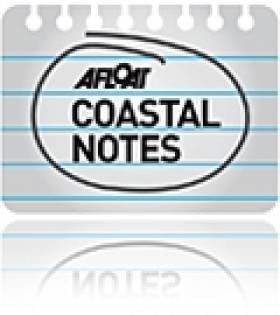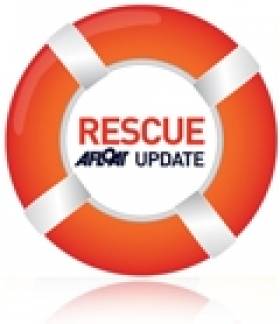Displaying items by tag: David Gilsenan
#MCIB - The families of two fishermen found dead at sea off the Skerries last April may never uncover the circumstances that led to their demise. But the official report into the incident indicated that the absence of lifejackets was a significant contributing factor.
Ronan Browne (26) and David Gilsenan (41) were reported missing on the evening of 1 April after failing to return from a trip tending to lobster pots.
Their vessel, Lady Linda, was found the following morning upturned in an oil slick off Clogherhead with no sign of the crew.
It wasn't until a week later that their bodies were discovered caught in the vessel's fishing gear some five miles east of Clogherhead, as previously reported on Afloat.ie.
Post-mortem results found that both men died from drowning, with Gilsenan also showing signs of hypothermia.
With no eyewitnesses to the incident, the report by the Marine Casualty Investigation Board (MCIB) indicated a number of possible causes from eqiupment malfunction or shifting of lobster pots on deck, to the wave height and weather conditions on the day, which were reportedly deteriorating when the boat left port.
It also said that Browne and Gilsenan "were lifelong friends, both men were experienced and qualified marine engineers in the fishing vessel industry. Both men were experienced in boat handling and fishing and had worked together on many occasions."
But the report emphasised the lack of personal flotation devices (PFDs) on board, and noted that emergency equipment was stored under the deck and not easily accessible.
The MCIB's recommendations include a review of the code of practice for fishing vessels under 15m to establish "revised stability critera" and ensuring that all boats are fitted with automatic radio beacons that deploy upon capsize.
In a separate incident, lack of proper maintenance led to an unlicenced boat taking on water off Co Kerry last August.
The Claire Buoyant was carrying one crew, five passengers and 21 sheep from Beginish Island to Ventry when the vessel began to lose stability.
Skipper Eoin Firtear - who the MCIB described as having "limited sea-going experience" - and his five passengers were rescued by passenger ferry. All sheep were jettisoned overboard, with 18 eventually recovered.
The report reminded that the carriage of livestock should only be undertaken in appropriately certified vessels.
- MCIB
- Marine Casualty Investigation Board
- report
- Lady Linda
- Clogherhead
- Ronan Browne
- David Gilsenan
- lobster pots
- Fishing
- drowning
- hypothermia
- missing
- malfunction
- wave height
- Weather
- lifejackets
- Personal Flotation Devices
- PFDs
- Code of Practice
- stability
- Radio
- beacon
- maintenance
- unlicenced
- Co Kerry
- Claire Buoyant
- Sheep
- Passengers
- Beginish Island
- Ventry
- Eoin Firtear
- Skipper
- Rescue
- Livestock
Rush Hosts Annual Blessing of the Boats
The annual Blessing of the Boats took place recently at Rush Sailing Club, the North County Leader reports.
Local priest Fr Kieran Coughlan conducted the ceremony, which took place away from the boats this year due to particularly blustery conditions on the day.
Fr Coughlan also led the large gathering in paying tribute to Skerries fishermen Ronan Browne and David Gilsenan, who lost their lives last month.
The North County Leader has more on the story HERE.
Skerries Search Called Off as Bodies of Fishermen Found
The bodies of two fishermen missing off the Skerries coast since last Friday have been found.
Ronan Browne, 26, and David Gilsenan, 41, had not been seen since setting out from Skerries harbour on the morning of 1 April.
As previously reported by Afloat.ie, the alarm was raised when they had failed to return by 6.30pm and a coast guard search began immediately.
Naval vessels joined the operation as the search continued following the discovery of an upturned hull and an oil slick near Clogherhead, Co Louth.
According to RTÉ News, at 1.40am yesterday morning a fishing vessel discovered the bodies of the two men caught in its fishing gear some five miles east of Clogherhead. They were recovered by RNLI lifeboat.
RTÉ News has more on the story HERE.


























































